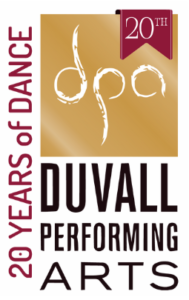
Early Childhood Program
WHY ARTS?
WHY AN ARTS ENRICHED EXPERIENCE?
"Art does not solve problems, but makes us aware of their existence," sculptor Magdalena Abakanowicz has said. "Arts education, on the other hand, does solve problems," says author Fran Smith. Ms. Smith goes on to explain that involvement in the arts is associated with gains in math, reading, cognitive ability, critical thinking, and verbal skills. Arts learning can also improve motivation, concentration, confidence, and teamwork. These are all skills that we want for our children. In a society where the focus is more on the product, then the process, our staff's desire to teach the "whole" child is supported by using the arts to educate.
We believe that a child learns best when focusing on the process, not just the end result. Curiosity, testing, failing, trying again, and succeeding are all a part of the process and this mirrors the process found in the arts, whether that be music, dance, theatre, or playing an instrument. The end result is beautiful and gratifying BECAUSE the process is what produced it!
Through the arts, students can easily acquire basic skills needed for academic success.
CLASSROOM GOALS FOR YOUR CHILD
Social/Emotional Development
We desire to provide positive experiences that build your child's self-identity and healthy attitudes and feelings for themselves and others.
Cognitive Development
Our goal is to instill a love of creative thinking and problem solving by observation and exploration. Failure is not bad, it is a chance to try again and succeed!
Language Development
Our classroom activities revolve around both receptive and expressive language skills. We help students learn how to both understand verbal language and use is it effectively to communicate with peers and to express themselves.
Physical Development
Through movement in classroom large group time, to time in the studio spaces for Arts Enrichment classes, we strive to increase your child's physical fitness level and coordination. We help students establish a sense of personal space with others while strengthening their overall core concept of self.
Logical/Mathematical/Spatial Development
Our stations and activities are developing your child's visual recognition and discrimination of shapes, patterns and eventually numbers. The experience of measuring, weighing, categorizing, and sorting are all building blocks for acquiring a strong number sense in their academic future.
Listening and Speaking
We strive to create opportunities for your child to converse with adults and peers about topics of personal interest, as well as discuss topics beyond direct, current experiences.
Music, Dance, Theatre Development
In the studio space, students learn rhythm, tempo, beat, concentration and memory through repeated steps, telling stories through dialogue, and moving through space in lines, shapes, and with separate movements of their body. We also help children build a positive respect for their bodies and physical boundaries for themselves and others.
Intrapersonal/Interpersonal Development
Our classroom will set goals for themselves as a group and individual goals for academic and personal skills. There is time built into our schedule to reflect quietly as individuals and time to work together cooperatively.








